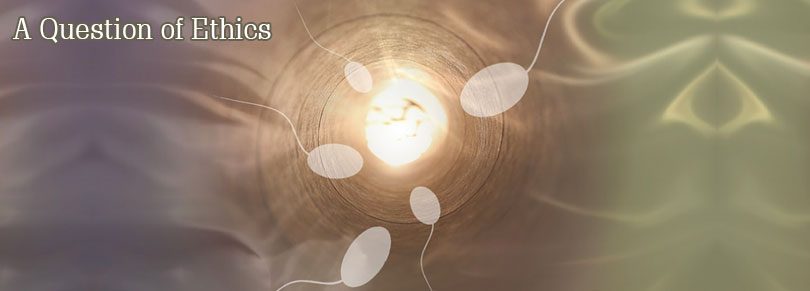ART – A necessary debate
There are many ethical issues spawned by the rapidly advancing and complex world of Assisted Reproductive Technology (ART). These scientific advancements to provide a child for a childless couple are truly great achievements. However, does it justify the means we have used to accomplish it? If the end is a good one, how should we decide what means are proper to achieve that end? Surrogacy, artificial insemination and in vitro fertilization (IVF) are just some of the methods used today to enable childless couples to have children.
In-Vitro Fertilization (IVF) is where several ova are removed from the wife and fertilized with the husband’s sperm in a petri dish. The fertilized ova are then placed in the wife’s womb with the intent that a normal pregnancy occur. This method is one way a couple who cannot conceive naturally can have children who are genetically like themselves. IVF can also occur using the ova and/or sperm of donors, where, of course, the child would not be the genetic product of both husband and wife.
Artificial insemination is a common and simple procedure whereby the wife of an infertile man is artificially inseminated by the sperm of a donor. The child is genetically only the wife’s. In situations in which the husband has viable sperm but conception hasn’t occurred naturally, his sperm can be used in this procedure, this is called Intra Uterine insemination (IUI). Surrogacy is used when the wife is fertile but cannot carry a child to term.
The wife’s ovum is fertilized with the husband’s sperm in vitro, and then the embryo is implanted in the womb of the surrogate. The embryo is the genetic product of the husband and wife. When the wife is infertile the surrogate is artificially inseminated with the sperm of the husband. The child is genetically only the husband’s.
Family Mantra’s View:
Assisted reproductive technologies have helped thousands of infertile married couples have children when they might not otherwise have had the chance. These are nothing short of gifts from God. But like any technology, ART can be used for good or for bad. IVF is increasingly employed in ways that go beyond helping married couples procreate, ranging from making babies for single women to homosexuals.
Family Mantra believes that God has given man the ability to invent and discover new medical techniques. It is obvious that God has blessed us with medical technology that can circumvent many physical problems. If there is a cure for infertility, then we certainly may use it as long as it is within moral boundaries.
- The embryo is a human being from conception and must be treated with respect. Sovereignty over life and death belongs to God alone.
- A marriage is a heterosexual monogamous relationship. Any attempts to have children must take place only within this relationship.
- Marriage is a sacred union and an exclusive relationship. In the option of surrogacy, a third party is being drawn into the intimate marital relationship.
- Artificial insemination, if the husband’s sperm are used to fertilize his wife’s ovum, as in the case of IUI, is a good option. Using donor sperm again brings in a third party.
- With IVF there is no danger of breaking the marriage covenant provided the husband’s sperm and the wife’s eggs are used.
- With IVF, the couple must ensure that all fertilized ova or embryos must be implanted regardless of their condition. Typically, improperly developing embryos are discarded and sometimes experiments are performed on extra embryos. These practices must not be allowed because they violate the principle that embryos are human beings created by God.
- Multiple pregnancies at times take place with IVF which are almost certain failures. The solution used is called foetal reduction, which is the killing of all but one or two of the unborn infants in order to increase the chance of their survival. This should not be considered as option. Sovereignty over life and death belongs to God alone. The number of ova fertilized in IVF procedures can be controlled therefore, the number of embryos put back into the uterus can be regulated. The physician must decide from a medical standpoint how many infants could survive gestation and only that number of ova should be fertilized. Therefore there should never be the “need” for foetal reduction in IVF. Although this limitation reduces the chances of success, couples should not put themselves in situations where their children could not possibly survive.
- IVF has resulted in a growing excess of frozen human embryos, most of whom will never be given the opportunity to implant and develop, and will die as a result. These are the excess embryos that are not implanted into the woman. These can be used for the next round of IVF but patients who complete their families and do not plan to use the embryos must decide what to do with these embryos. Again, the option of destroying life is not ours to make.
Dr. Sasikala Natarajamani, MBBS, M Med Sci (ART), Scientific Director – Crea Conceptions says that the other ethical challenges that arise are people requesting for donor eggs/sperm without the knowledge of their spouse, elderly couples seeking IVF treatment without the appreciation of the child-care and welfare, increase in societal pressure on the couples to have a baby and there is now almost a stigma on the woman who tends to be normally blamed even when the man has a problem.
There is no question that assisted reproductive technologies have helped thousands of infertile married couples have children. However, we cannot lay aside the debate over the methods. No matter what methods and means are chosen, accept the sovereignty of God and choose life, above all.





